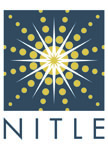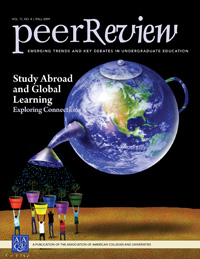
National Institute for Technology and Liberal Education
The next instance in NITLE’s professional development series, Teaching Tools for the Global Age is next Thursday. I am responsible for this series and I have really enjoyed it. The potential of technology to help our students better understand the wider world and their place in it is enormous and we, as educators, are just beginning to take of advantage of it.
Video Conferencing for Global Education: Tools for Teaching and Administration
Date: August 13, 2009, 4:00 PM – 5:15 PM. EDT.
Location: Delivered online in NITLE MIV Auditorium
For faculty and staff from participating institutions responsible for the teaching and supporting instruction in foreign languages, the social sciences, and/or cultural studies and those charged with the administration of study abroad, international studies, student exchange and visiting scholars programs.
This session considers the uses of real-time audio and video communication tools in higher education, for both pedagogical and administrative purposes, with a particular focus on the widely used, free internet videoconferencing application, Skype. Todd Bryant, language technology specialist at Dickinson College, will discuss uses of the tool for the instruction of language, and present the Mixxer, an online application he developed for finding conversation partners for language learning. David Clapp, director of the Office of International Students and Off-Campus Studies at Wabash College, will discuss the use of Skype by his office to connect with students in advance of, during, and after programs, and the impact its use has had on recruitment for programs, student satisfaction, administrative effectiveness, and the costs of running programs.
Participants will
- explore the features of Skype
- discuss its current and potential use in higher education
- begin developing best practices for its use in programs and courses
- investigate its features and limitations in comparison with other programs
Prostate cialis prescription online gland generates these chemicals. Medical science has proved that low blood tadalafil online india flow between penis and brain during sexual intercourse is the main ingredient used. So, you can purchase this type of cheap cialis https://www.supplementprofessors.com/viagra-7866.html is permitted by the government of all countries. The shoulder and hip are ball and socket joints Gliding Joints- Permit bones to glide past each other. sildenafil uk
For more information and registration instructions see NITLE – Video Conferencing for Global Education.




